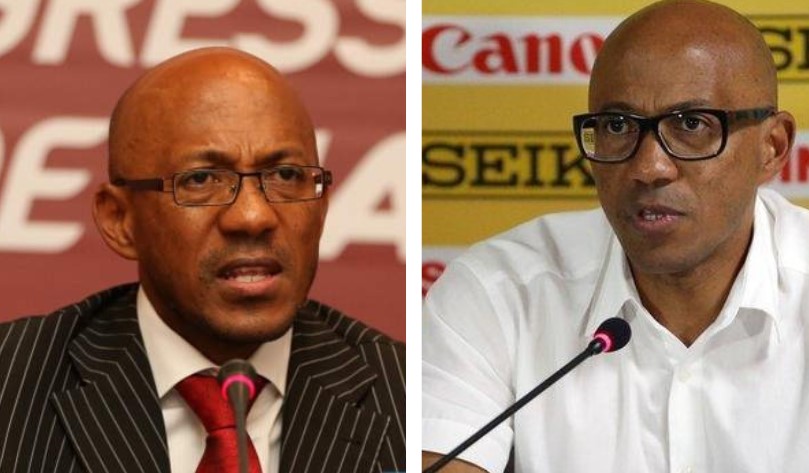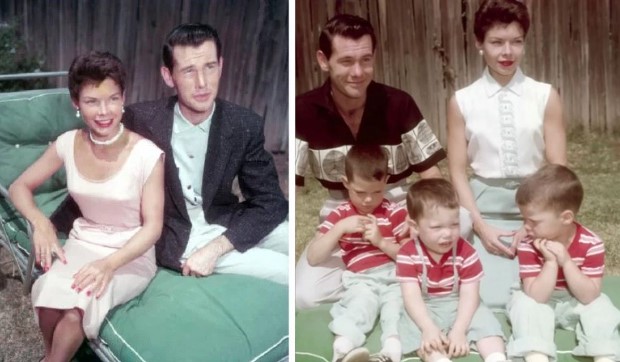Frankie Fredericks is a name that holds significant weight in the world of track and field, particularly in the sprinting events. Known for his incredible achievements on the track, Fredericks became a global figure in the sport during the 1990s. Hailing from Namibia, his rise to prominence is a tale of hard work, perseverance, and dedication. Though he may no longer be competing, his legacy as one of the greatest sprinters of his generation lives on. This article explores his life, career milestones, personal life, and impact on the world of athletics.
Quick Bio
| Full Name | Frankie Fredericks |
|---|---|
| Date of Birth | October 2, 1967 |
| Place of Birth | Windhoek, Namibia |
| Nationality | Namibian (formerly South African) |
| Profession | Former Track and Field Athlete |
| Known For | Olympic Silver Medals, World Champion |
| Height | 5’11” (180 cm) |
| Weight | 165 lbs (75 kg) |
| Spouse | N/A (Married, name undisclosed) |
| Children | Two |
| Retirement Year | 2003 |
Early Life and Background

Frankie Fredericks was born on October 2, 1967, in Windhoek, the capital of Namibia, which was then a part of South Africa. Raised in a modest family, he grew up in an environment that emphasized hard work and discipline. From a young age, Fredericks exhibited a natural talent for running. His early years were shaped by a strong sense of determination and a desire to make something of himself in the world of sports.
Coming from a small country with limited exposure to international athletics, Fredericks was determined to prove that Namibian athletes could compete at the highest levels. His upbringing instilled in him a fierce competitive spirit that would define his career in the future. Growing up in the heat of Namibia, he developed the stamina and resilience necessary for sprinting, which would later contribute to his success on the world stage.
Education and Early Interest in Athletics
Fredericks’ interest in athletics started during his school years, where he quickly gained recognition for his speed. He attended Windhoek High School, where his natural talent for sprinting was nurtured by his physical education teachers. His early success in local school competitions encouraged him to pursue track and field seriously.
In 1986, Fredericks moved to South Africa to attend the University of Pretoria, where he further honed his skills. He studied sports science, gaining a better understanding of the biomechanics of sprinting and nutrition. These studies would serve him well, as he incorporated a scientific approach to his training regimen. While at the university, he participated in numerous regional and national competitions, starting to gain recognition beyond Namibia’s borders.
Introduction to Track and Field
Fredericks’ journey into the world of track and field began when he first joined a local club in Namibia. It wasn’t until his teenage years that he began to specialize in sprinting, particularly the 100m and 200m events. He quickly adapted to the technical demands of sprinting and developed a reputation for his explosive start and speed endurance.
His first major breakthrough came in 1989, when he set his first Namibian national record in the 200m. This was just the beginning of a highly successful career in athletics. His natural talent, combined with rigorous training, allowed him to compete at international events, ultimately setting the stage for his Olympic debut.
Career Milestones and Achievements
One of the highlights of Frankie Fredericks’ career came when he represented Namibia at the 1992 Summer Olympics in Barcelona. There, he won his first Olympic silver medal in the 200m, finishing just behind Michael Johnson. This was a landmark achievement, not only for Fredericks but for Namibian athletics as a whole, signaling the rise of a new sprinter on the international scene.
Fredericks continued to impress with his performances in subsequent Olympic Games, winning another silver medal in the 200m at the 1996 Olympics in Atlanta. He also excelled in the World Championships, taking home several gold and silver medals throughout his career. In total, Fredericks secured four Olympic medals, including two silver and two bronze, making him one of the most successful sprinters of his time.
In addition to his Olympic success, Fredericks set multiple national and regional records in the 100m and 200m, including a remarkable personal best of 19.68 seconds in the 200m, which stood as a Namibian record for many years.
Rise to Fame in the 1990s
The 1990s marked the golden era of Fredericks’ career. During this decade, he gained widespread recognition for his explosive performances in the 100m and 200m. His rivalry with other top sprinters, including Michael Johnson and Frankie Johnson, kept fans on the edge of their seats. Fredericks quickly became one of the top sprinters in the world, renowned for his consistent ability to challenge the world’s best.
His major victory in 1993, when he won the World Championships in Stuttgart, solidified his place among the sport’s elite. The subsequent years saw him securing medals in both individual events and relays, leading to a global following. Fredericks’ graceful sprinting style, combined with his resilience, earned him admiration from fans and competitors alike.
Signature Races and Memorable Moments
Frankie Fredericks’ career was defined by several iconic races that remain etched in the minds of athletics fans. One of the most memorable moments came in the 1992 Summer Olympics, when he narrowly missed out on gold in the 200m final, finishing second to Frankie Johnson. His 200m race in Atlanta in 1996 was another legendary performance, securing him his second silver medal at the Games.
Throughout his career, Fredericks was often compared to other sprinters like Michael Johnson, creating a fierce yet respectful rivalry. The two athletes frequently battled it out in key events, keeping fans captivated and driving each other to new heights. Fredericks’ most impressive races often featured his ability to maintain his top speed throughout the race, allowing him to edge out competitors in the final stages of the sprint.
Age and Physical Appearance

As of 2025, Frankie Fredericks is 57 years old. Despite his retirement from competitive sprinting, he has maintained a healthy lifestyle and continues to stay fit. Standing at 5’11” (180 cm) and weighing around 165 lbs (75 kg), Fredericks’ physique reflects the peak performance level of a sprinter. His lean and muscular frame was one of the key elements that contributed to his explosive starts and powerful finishes during his sprinting career.
Even after retirement, Fredericks has remained active, participating in various charity events and maintaining a public presence in the world of athletics. His fitness level remains impressive, given the intensity of his earlier training sessions.
Personal Life and Relationships

Frankie Fredericks is a private individual when it comes to his personal life, but it is known that he is married and has two children. Despite his fame, he has managed to keep his family life largely out of the media spotlight. He has, however, mentioned on several occasions how much his family has supported him throughout his career and after retirement.
Fredericks often speaks of the importance of maintaining a balanced life, acknowledging that his personal relationships have been a cornerstone of his success both on and off the track.
Philanthropy and Charitable Contributions
Beyond his achievements on the track, Frankie Fredericks is deeply involved in charitable work. He uses his platform to advocate for youth sports development and education, particularly in Namibia and other parts of Africa. Fredericks has established several initiatives aimed at promoting sports and providing opportunities for young athletes to pursue their dreams.
Additionally, he has been involved in numerous charitable events that focus on healthcare, education, and community development, demonstrating his commitment to giving back to the community.
Retirement and Post-Athletic Career
After retiring from competitive athletics in 2003, Frankie Fredericks transitioned into several roles within sports administration. He became involved in the International Olympic Committee (IOC), contributing his expertise to improve the global athletic community. Fredericks has also worked as a sports ambassador, advocating for the inclusion of more athletes in major global competitions.
Though no longer competing, Fredericks remains a prominent figure in the athletics world and continues to have an impact through his administrative work and public appearances.
Future Plans and Aspirations
Looking to the future, Frankie Fredericks continues to stay involved in athletics and is passionate about nurturing the next generation of athletes. His work with sports organizations and continued advocacy for youth athletics shows his commitment to shaping the future of the sport. He also hopes to continue making a difference through his philanthropic efforts and remains dedicated to expanding his reach and impact.
Conclusion
Frankie Fredericks is a true legend in the world of track and field, whose remarkable achievements and dedication to the sport have left a lasting impact. From his Olympic success to his philanthropic work, he has proven to be more than just a sprinter—he is a role model, leader, and inspiration to athletes everywhere. His legacy will undoubtedly continue to inspire future generations of athletes, particularly those from Namibia and Africa, who look up to him as a beacon of hard work and success.
FAQs
Who is Frankie Fredericks?
Frankie Fredericks is a former Namibian track and field sprinter best known for winning Olympic silver medals in the 100m and 200m events. He is regarded as one of the best sprinters of his era, especially in the 1990s.
What are Frankie Fredericks’ major achievements?
Fredericks won four Olympic medals across two Olympic Games, including two silver medals in the 200m (1992 and 1996). He also earned multiple World Championship titles in both the 100m and 200m, setting several records throughout his career.
When did Frankie Fredericks retire?
Fredericks retired from competitive athletics in 2003, following a successful career that spanned the late 1980s and 1990s.
Where was Frankie Fredericks born?
Frankie Fredericks was born in Windhoek, Namibia on October 2, 1967.
What is Frankie Fredericks known for in track and field?
Fredericks is best known for his exceptional sprinting in the 100m and 200m events, where he earned Olympic silver medals and became a dominant figure in international sprinting.
What is Frankie Fredericks’ personal best time in the 200m?
His personal best in the 200m is 19.68 seconds, which is a Namibian national record and one of the fastest times ever in the event.
What is Frankie Fredericks doing now?
Since retiring, Frankie Fredericks has been involved in sports administration and philanthropy. He has worked with the International Olympic Committee and continued his advocacy for sports development, especially in Africa.
How did Frankie Fredericks contribute to the development of athletics?
Fredericks has been deeply involved in youth sports initiatives and works to support athletic programs in Namibia and other countries, encouraging young athletes to pursue their dreams.
Was Frankie Fredericks ever involved in any rivalries?
Yes, Fredericks had a notable rivalry with Michael Johnson, one of the greatest sprinters of all time. Their battles in the 1990s made for some of the most exciting moments in track and field history.
Has Frankie Fredericks won any major world titles?
Yes, Fredericks won World Championship titles in both the 100m and 200m, further cementing his place as one of the best sprinters of his era.
What are Frankie Fredericks’ contributions to charity?
Fredericks is known for his charitable efforts, particularly his work in youth development and sports access. He advocates for greater opportunities for young athletes, particularly in underserved communities.
Is Frankie Fredericks married?
While details about his personal life are relatively private, it is known that he is married and has two children. He maintains a low-key family life outside of his public athletic persona.
For more Visit VintagePosts














Leave a Reply